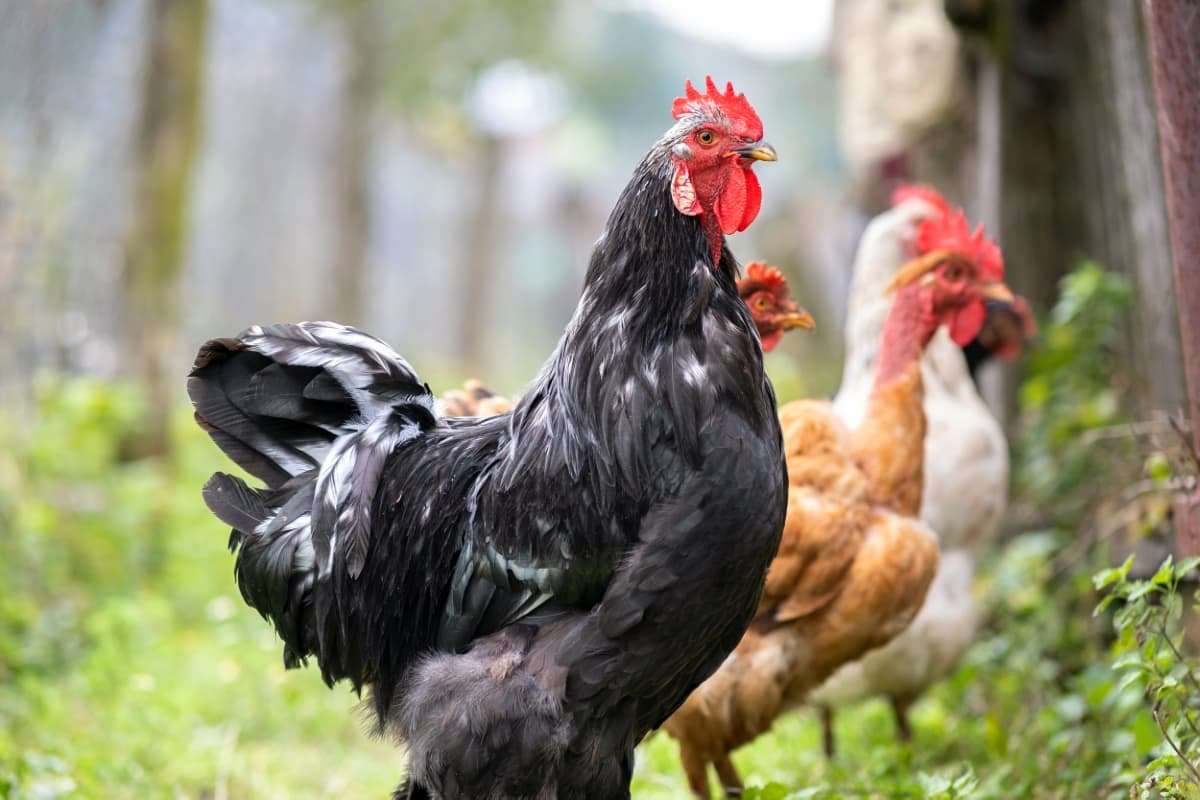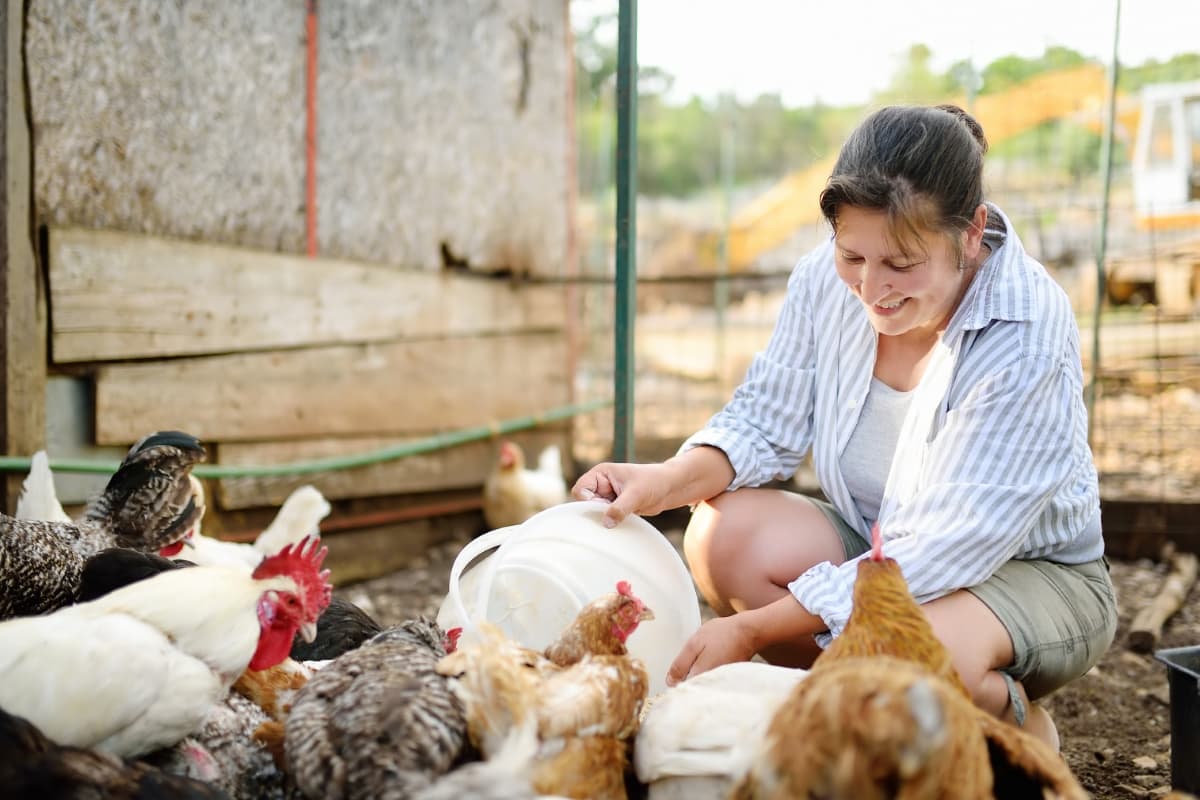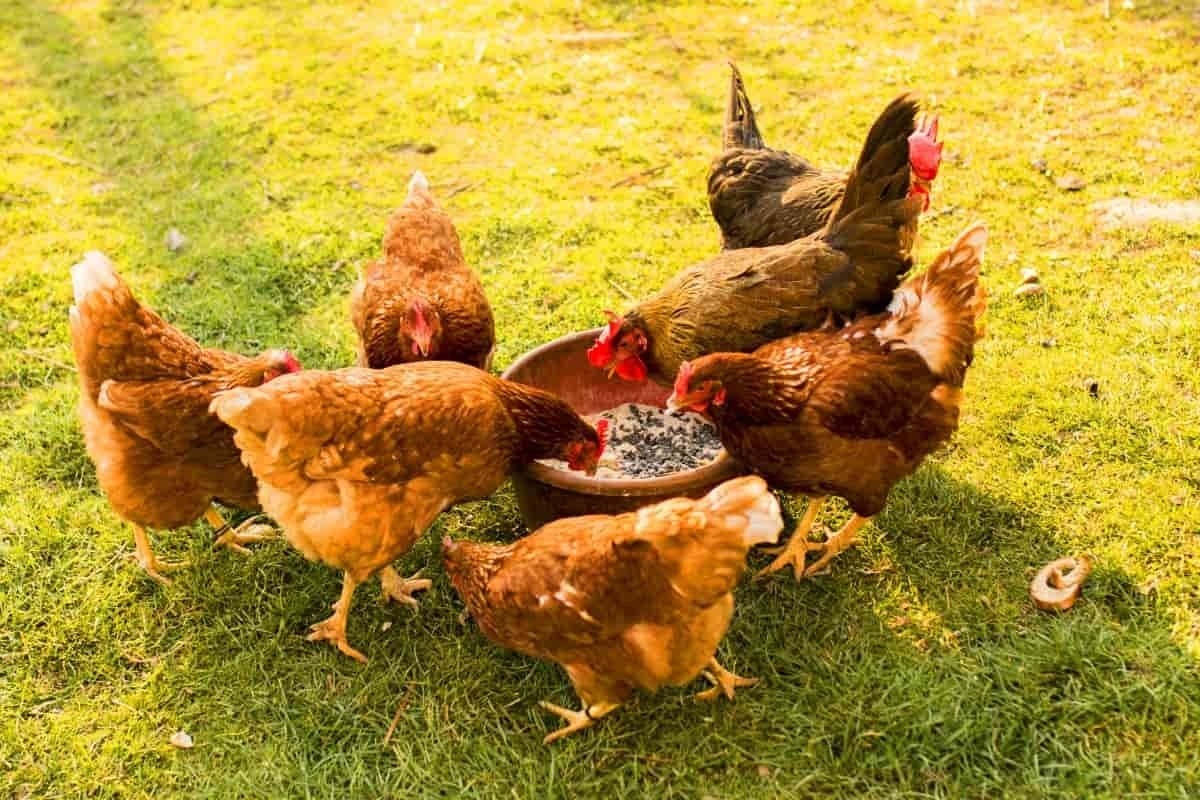Chickens are incredibly resilient creatures, capable of consuming many foodstuffs that many other animals cannot. They are natural foragers, always hunting for food from grains to vegetables, bugs, and fruits. However, not all foods are safe or healthy for chickens. This article provides an in-depth look at the safety of feeding chickens with various fruits and vegetables such as oranges, tomatoes, grapes, garlic, banana peels, pineapple, strawberries, celery, and asparagus. Remember that variety and moderation are key to a balanced diet for your chickens.

Can Chickens Eat Oranges
Can Chickens Eat Oranges and Their Peels?
Starting with the question, “Can chickens eat oranges and their peels?” The answer is yes but with some caution. Oranges, like many citrus fruits, are an excellent source of vitamin C. However, they also contain high acidity levels, which can disrupt a chicken’s digestive system if consumed in large quantities.
The peel is not toxic, but its tough texture may be difficult for chickens to digest. Additionally, the essential oils found in the peel can act as a natural dewormer, although more research is needed in this area. While not their favorite, feeding chickens small amounts of oranges and their peels is acceptable, as long as it’s part of a balanced diet.
Are Grapes Safe for Chickens to Eat?
Chickens can definitely eat grapes and they really enjoy them. Grapes offer beneficial antioxidants, vitamins, and minerals. Grapes are safe and enjoyable for them; they can even eat grapes with seeds. But moderation is the key. Like all treats, grapes should make up no more than 10% of their diet. The mainstay of a chicken’s diet should always be high-quality poultry feed, which ensures they get the necessary nutrients.
Feeding Strawberries to Chickens: Is it Safe?
The thought of “feeding strawberries to chickens” often raises questions about their safety. Rest assured, strawberries are safe and a favorite among many chickens. They contain antioxidants and vitamin C that enhance the chickens’ immune system. Just like with any other treats, these should be fed in moderation. It is also essential to clean the strawberries properly to remove any pesticides that might be present.
Can Chickens Eat Celery Leaves and Stalks?
The discussion around “Can chickens eat celery leaves and stalks?” is rather positive. Chickens can indeed eat both the leaves and stalks of celery. They contain vitamins and minerals such as vitamins K, C, and potassium. However, the fibrous nature of celery means it should be chopped into small, manageable pieces to prevent the risk of choking. This rule applies to both the stalks and the leaves.
In case you missed it: How to Raise Chicken and Quail Together: A Comprehensive Guide

Is Garlic Safe for Chickens to Consume?
“Is garlic safe for chickens to consume?” is another common question among poultry owners. Garlic is indeed safe and even beneficial to chickens. It is known to boost the immune system, increase respiratory health, and has been suggested to act as a natural wormer. While research on the efficacy of garlic as a wormer is still ongoing, it certainly wouldn’t hurt to add a little garlic to their diet now and then.
Feeding Asparagus to Chickens: What You Need to Know
Shifting gears, let’s talk about “feeding asparagus to chickens.” Chickens can eat asparagus, packed with nutrients such as vitamins A, C, E, and K, and fiber. However, asparagus has a strong flavor that some chickens might not appreciate, so don’t be surprised if they turn up their beaks at it initially. Furthermore, asparagus can flavor eggs if given in large amounts. As with other foods, offer asparagus in moderation and as part of a balanced diet.
Can Chickens Eat Bananas and Their Peels?
Now, addressing the query, “Can chickens eat bananas and their peels?” Chickens can eat bananas, and they generally love them. Bananas provide vital vitamins, minerals, and potassium. As for the banana peels, chickens can eat them too. However, the peels can be tough and fibrous, so it’s best to cut them into smaller pieces to make them more manageable. While there’s nothing inherently wrong with chickens eating banana peels, they might just ignore them due to their texture and flavor.
Feeding Pineapples to Chickens: Is It Safe?
The debate on “feeding pineapples to chickens” yields positive results. Chickens can eat pineapple, providing a nice sweet and juicy treat. Pineapple is packed with vitamin C, manganese, and bromelain, an enzyme that aids digestion. However, its high acid content could be problematic if chickens eat too much. To put it succinctly, “Can chickens eat pineapple?” Yes, they can, but in moderation.
Further Precautions when Feeding Chickens Fruits and Vegetables
As you continue your chicken feeding journey, remember to always ensure the fruits and vegetables are clean, fresh, and free of mold or rot, as these can harm chickens. Stale or moldy food can lead to health problems, including digestive issues and infections. Remove any seeds or pits from the fruits, as some may be harmful or difficult to digest. Overly acidic fruits, like citrus and pineapple, should be fed sparingly to prevent upsetting their stomachs.
In case you missed it: How to Introduce Dogs to Your Chickens: A Step-By-Step Guide

Lastly, observe your chickens after introducing new food to their diet. If they show any discomfort or sickness, discontinue the food and consult with a veterinarian if necessary. By following these measures, you can ensure your chickens have a balanced diet while enjoying various flavors.
Conclusion
Most fruits and vegetables, including those we have discussed, are safe for chickens to eat. The core principle is that these should be offered in moderation and as part of a balanced diet. A chicken’s diet should be primarily composed of high-quality chicken feed formulated to provide the right balance of nutrients. While fruits and vegetables are great supplements to their diet, remember that not all are safe for chickens to consume. Always do your research before introducing new foods into their diet.
Conversely, knowing “what they can’t chickens eat” is equally important to ensure their well-being. For instance, avoid giving chickens raw beans, chocolate, or avocados, as these foods can be toxic. So, “Can chickens eat tomatoes, grapes, strawberries, etc.?” Indeed, they can, and they will likely enjoy the variety. But remember the golden rule of moderation to ensure your chickens stay happy and healthy.
- Feed Your Flock for Less: Top 10 Tips to Save on Chicken Feed
- Ultimate Guide to Ossabaw Island Hog: Breeding, Raising, Diet, and Care
- Hatching Answers: The Top 10 Reasons Your Chickens Aren’t Laying Eggs
- Eggs and Economics: Breaking Down the Cost of Raising Backyard Chickens
- Defend Your Greens: Proven Methods to Keep Iguanas Out of Your Garden
- Ultimate Guide to Cinnamon Queen Chicken: A Comprehensive Guide for Beginners
- Ultimate Guide to California Tan Chicken: Breeding, Raising, Diet, Egg-Production and Care
- Ultimate Guide to Marsh Daisy Chicken: Breeding, Raising, Diet, and Care
- 10 Types of Chicken Farming Businesses You Can Start for Profits